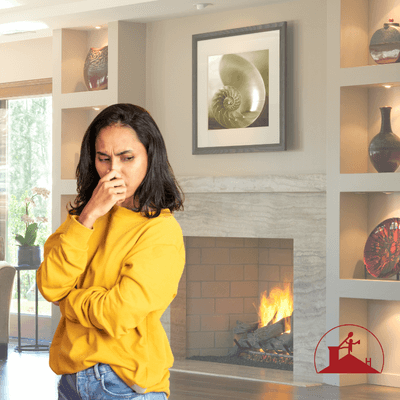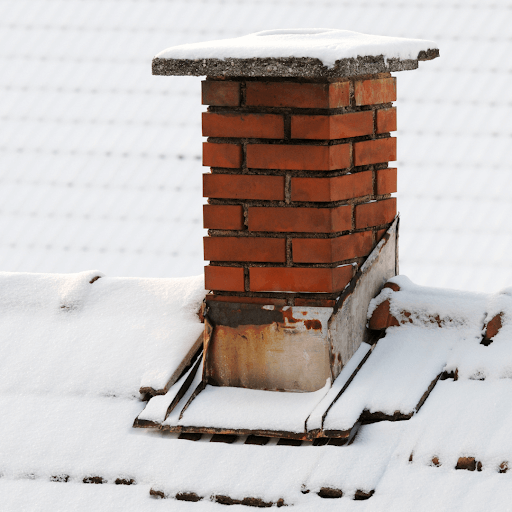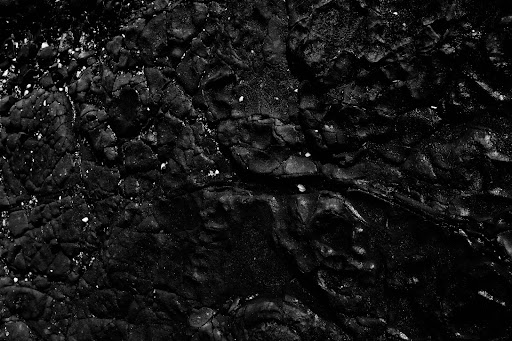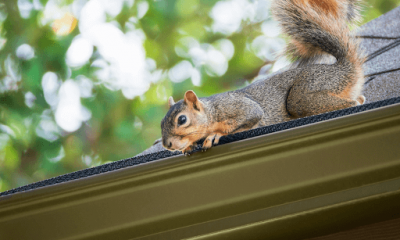
Prevent Fireplace Smell with Chimney Sweep Service from VC
Typically when people say they love the smell of a fire, they don’t mean gross fireplace odor! Besides the fact that no homeowner or building visitor wants to be in an area that smells unpleasant, fireplace smell and chimney odors can be especially difficult to get rid of. Fortunately, you can prevent fireplace smell with a chimney sweep service.
You might be wondering how your fireplace smell started in the first place. A musty-smelling fireplace can stem from numerous reasons. This is why it is important as a chimney owner that you remain proactive about fireplace odor removal.
Fireplaces are meant to keep your home cozy and comfortable. The last thing you want is to be disturbed by fireplace smells. Make sure you know your chimney inside and out to stop fireplace smell at the source – read on to learn more!
Should My Fireplace Smell?
The safest answer here is no. Fireplace smells can understandably be tricky. After all, part of the reason to have one is for the aromatic and sensory benefits.
From the slight smell of burning wood to piney freshness and smokey tang, many people mentally associate these smells with a fire. But, if there is a stronger smell than normal for any of these, there could be a problem requiring immediate chimney inspection.
While fireplace smell has many main aromas, such as burning wood, extra smoky scents that are stronger than usual can mean that your fireplace is not venting out the smoke properly. Inhaling smoke in excess can be harmful and if not properly flowing up your chimney, it can flow out into your home, causing your beautiful things to be scarred with a smoky scent forever.
And smelling your fireplace when it isn’t lit is even more reason to call Valley Chimney. Wet, moldy odors can be the reason for a major underlying issue that can also have alarming negative effects on any resident’s health.
It is always better to play it safe. If your home has a fireplace smell, you know who to tell – Valley Chimney!
What Causes A Fireplace to Smell?
As always, when an odor is a main fireplace problem, there can be a few things that cause it. Make sure you are aware of these to be on the lookout! Fireplace smells can occur year-round, so you should always be vigilant.
1. Can Humidity and Leaks Cause My Fireplace to Smell?
 Humidity and leaks are common causes of musty fireplace smells. Excess moisture during the wet winter and spring months is another common cause of unpleasant fireplace odor, so make sure to add a chimney inspection to your fireplace spring cleaning checklist!
Humidity and leaks are common causes of musty fireplace smells. Excess moisture during the wet winter and spring months is another common cause of unpleasant fireplace odor, so make sure to add a chimney inspection to your fireplace spring cleaning checklist!
The greater Chicago area averages around 37 inches of snow per year. Heavy rain and snow can put your chimney at a higher risk for leaks.
When leaks occur, moisture can become trapped in sealed spaces within your chimney, a perfect recipe for mold and mildew growth. Valley Chimney Sweep and Restoration recommend regular chimney sweeps and inspections to prevent and tackle odors and unwanted substances in your chimney year-round. Frequent Chicago chimney sweep services are a necessity!
Increased Chance of Fireplace Smells In The Summer
As we all know, summer is when it gets humid the most. Although your chimney gets the most use during the fall and winter months, be sure not to neglect it during this humid, hot season.
Rising humidity can cause excess moisture in your chimney which can lead to a strange odor. This is why there is an increased chance of fireplace smells in the summertime. Aside from the negative smell, high humidity allows for a perfect environment in your chimney for mold and mildew to develop, which only impacts your health more and increases fireplace odor levels.
2. What Does Creosote Build-up Smell Like?
 Creosote is a natural chemical by-product that is released in fire smoke. When your chimney has proper airflow, creosote and smoke and ventilated upwards. While this is what is supposed to happen for a well-functioning chimney, over time creosote deposits can build up in the internal funnel of your chimney pathway.
Creosote is a natural chemical by-product that is released in fire smoke. When your chimney has proper airflow, creosote and smoke and ventilated upwards. While this is what is supposed to happen for a well-functioning chimney, over time creosote deposits can build up in the internal funnel of your chimney pathway.
This creates another odor-causing option. Creosote has a sharp, smoky smell that people can easily smell in even the smallest amounts.
Creosote deposits can restrict airflow in your chimney, leaving smoke no other way out than back through your fireplace and into your home. With your chimney being a direct opening to the outside, it is inevitable that some water and moisture will enter. When this mixes with the creosote, it can create mold and other foul-smelling bacteria.
Plus, creosote is a chemical by-product build-up. This means that creosote is naturally flammable, leading to chimney fires and worse.
Creosote buildups can easily be avoided through removal during chimney inspections. To learn when your chimney needs proper cleaning, our blog post discusses more in-depth the three stages of creosote buildup.
3. How to Tell if My Chimney Has Blockages or Animals Inside
 Since Chicago is so cold, oftentimes small animals may use your fireplace to warm up. Unfortunately, these beings can get stuck in your chimney and pass away, leading to a whole other type of smell that you don’t want heading into your home. Valley Chimney can perform regular checks for blockages or uninvited guests in your chimney to help with fireplace odor removal.
Since Chicago is so cold, oftentimes small animals may use your fireplace to warm up. Unfortunately, these beings can get stuck in your chimney and pass away, leading to a whole other type of smell that you don’t want heading into your home. Valley Chimney can perform regular checks for blockages or uninvited guests in your chimney to help with fireplace odor removal.
As an experienced, full-service chimney sweep specialist, Valley Chimney has dealt with these issues many times over the years. Our experience allows us to expertly handle each one and get your chimney back to fully operating and heating your home without any fireplace smell.
Why You Should Avoid Fireplace Odor At All Costs
Fireplace odor is something that should always be dealt with immediately. When it comes to chimney odor, “out of sight, out of mind” can be a costly mindset to have – both for your health and your home.
Do Fireplace Odors Indicate Underlying Issues?
They can! Besides being extremely unpleasant, chimney smells can be dangerous for building inhabitants. Chimney dampness can increase mold spores throughout the air. Breathing in mold spores can cause a variety of flu-like symptoms like runny nose, coughing, sneezing, headache, watery eyes, and even difficulty breathing.
According to the Centers for Disease Control (CDC), households with people who suffer from asthma and/or allergies should take extra care to prevent mold and mildew growth as those individuals may have more intense reactions to mold spores.
Do Fireplace Smells Lead to Costly Repairs?
As previously discussed, while preventative measures can always be taken, external moisture and weather have a tendency to get into chimneys even when you have the best intentions to keep them out. While this can lead to mold, it can also be a reason for other issues as well.
Structural problems can arise from water damage. Cracks in your masonry, exterior brick, and more can cause damage to your chimney, allow more water inside it, and contaminate the structural integrity of your home by damaging your roof, walls, and more.
To prevent this, you might need your chimney crown sealed or repaired. Regular chimney inspections will help identify this right away, potentially reducing the cost of repairs by handling the problem before it gets worse.
So if your home’s chimney is showing signs of odor or damage, make sure you take care of it straight away. Our informational blog breaks down what to do if you suspect mold in your chimney or fireplace.
How To Get Rid of Fireplace Smell?
 The best way to avoid any unwanted fireplace smell is to stay proactive. This means that regular maintenance and chimney inspection is needed to prevent fireplace smell.
The best way to avoid any unwanted fireplace smell is to stay proactive. This means that regular maintenance and chimney inspection is needed to prevent fireplace smell.
You can address chimney odors and their underlying issues by having a chimney sweep inspection at least once a year. Oftentimes, homeowners think they can identify soot, mold, and mildew on their own and clean chimneys themselves, but it is never a good idea to do this maintenance yourself.
DIY chimney sweeps can be dangerous for a few reasons:
- Risk of injury and falling
- Lack of proper cleaning equipment
- Leaving behind creosote buildup
- Lack of experience to check for structural damage
Chimney sweeps and fireplace odor removal are household jobs that are best and safest when left to the professionals. While maintaining your chimney is important, don’t risk your life to fix it. DIY chimney sweeps are never a good idea, especially when you can trust Valley Chimney to get it done for you.
Remove Fireplace Smell With Valley Chimney’s Fireplace Odor Removal Services
Valley Chimney Sweep and Restoration is a local Chicago area chimney cleaning and repair service. But our services go beyond just that for our amazing customers!
We also provide a wide range of professional chimney services that can help your home or building remain free of odor and function properly through even the harshest Chicago weather.
So if you’re wondering how to get rid of fireplace smell from your residential home or commercial property, candles won’t do the trick. If you smell something unpleasant emanating from your chimney or fireplace, schedule a chimney inspection or sweep with Valley Chimney today.
Back To Blog

